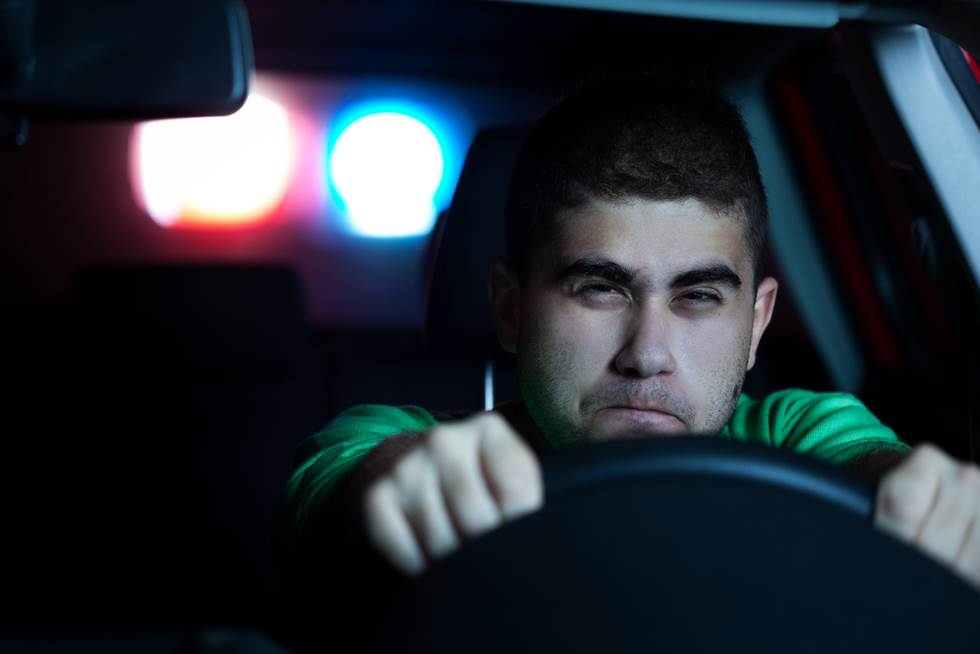Nevada drivers face felony charges for causing bodily injury or death while intentionally evading a police vehicle (NRS 484B.550). As a category B felony, eluding that results in injury or death carries two to 20 years in prison and/or a fine of up to $50,000.
NRS 484B.550 states:
1. Except as otherwise provided in this section, the driver of a motor vehicle on a highway or premises to which the public has access who willfully fails or refuses to bring the vehicle to a stop, or who otherwise flees or attempts to elude a peace officer in a readily identifiable vehicle of any police department or regulatory agency, when given a signal to bring the vehicle to a stop is guilty of a misdemeanor.
2. The signal by the peace officer described in subsection 1 must be by flashing red lamp and siren.
…
4. If, while violating the provisions of subsection 1, the driver of the motor vehicle is the proximate cause of the death of or bodily harm to any other person, the driver is guilty of a category B felony and shall be punished by imprisonment in the state prison for a minimum term of not less than 2 years and a maximum term of not more than 20 years, or by a fine of not more than $50,000, or by both fine and imprisonment.
In this article, our Las Vegas criminal defense attorneys discuss:
- 1. What is felony eluding causing death or bodily injury in Nevada?
- 2. What are the penalties for felony eluding causing death or injury?
- 3. What are the best defenses?
- 4. Can I get felony NRS 484B.550 cases sealed?
- 5. Related offenses
1. What is felony eluding causing death or bodily injury in Nevada?
Nevada motorists are required to stop as soon as possible after a marked police car signals for them to pull over. But motorists who deliberately ignore the police or try to flee face evasion charges (also called eluding). And if the driver injures or kills someone while evading police, the state will bring felony charges for eluding causing death or bodily injury.1
Example: Betty is driving with a broken taillight when the police signal for her to pull over. Betty panics since she is in a stolen vehicle and floors the gas in attempt to escape. But while speeding away, Betty hits a pedestrian. Here, Betty would be charged with felony evading causing injury.
Note that felony evasion charges are often accompanied by traffic charges such as speeding (NRS 484B.600), running a red light (NRS 484B.307), or reckless driving (NRS 484B.653).

Evading Nevada police causing bodily injury or death is a felony.
2. What are the penalties for felony eluding causing death or injury?
Killing or injuring someone while evading a police vehicle is a category B felony in Nevada. The punishment includes:
- 2 to 20 years in Nevada State Prison, and/or
- A fine of up to $50,000.
If the driver only causes property damage – or only endangers people or property – then the category B felony sentence is one to six years in prison and/or up to $5,000 in fines. Or if the driver was DUI while eluding – and there was no endangerment or damage – then eluding becomes a category D felony carrying one to four years in prison and/or up to $5,000 in fines.
The only time eluding police is a misdemeanor in Nevada is if the defendant:
- was not under the influence of alcohol or drugs and did not have illegal drug- or alcohol blood levels; and
- did not injure or kill anyone during the eluding; and
- did not cause property damage; and
- did not endanger people or property.
Misdemeanors in the state of Nevada carry up to six months in jail and/or up to $1,000 in fines.2
3. What are the best defenses?
Five possible defenses to Nevada criminal charges of evading causing death or injury are:
- The police were not in an identifiable vehicle (such as a plain car);
- The police failed to signal with a flashing red lamp and siren;
- The defendant did not intentionally ignore the police and did not hear or see the signal (“lack of intent”);
- There was no safe place on the road for the defendant to pull over for a traffic stop; and/or
- The injury or death was not caused by the defendant’s actions.
Typical evidence in these cases includes the police officer’s dashcam video recordings. If the criminal defense lawyer can show the district attorney that there is a reasonable doubt as to the defendant’s guilt, the state may be willing to reduce or dismiss the charges.
4. Can I get felony NRS 484B.550 cases sealed?
It is unclear whether Nevada law considers eluding police causing death or injury a “crime of violence.” If it is a “crime of violence,” then a conviction is sealable 10 years after the case ends. If it is not a crime of violence, then a conviction is sealable five years after the case ends. And if the charge gets dismissed, then there is no waiting period – the defendant can pursue a record seal immediately.
Note that if the defendant was convicted of evading while DUI (which is a category D felony), the record can be sealed five years after the case ends. Also note that misdemeanor evading convictions can be sealed one year after the case ends.3
Learn how to seal Nevada criminal records.

The penalties for violating NRS 484B.550 with injury or death are a prison sentence of 2 to 20 years and/or up to $50,000.
5. Related offenses
5.1. Resisting arrest
Resisting arrest (NRS 199.280) occurs when a criminal suspect obstructs law enforcement officers from carrying out an arrest. Resisting police can be a felony or a misdemeanor depending on whether weapons are used.
5.2. Obstructing a public officer
Obstructing a public officer (NRS 197.190) comprising making false statements to, hindering, or keeping information from public officers such as police or judges. It is a misdemeanor carrying up to six months in jail and/or up to $1,000 in fines.
5.3. Interfering with a government officer
Interfering with a government officer (NRS 197.090) is a more serious form of obstruction, often involving threats or physical force. And the defendant’s purpose is to keep the officer from being able to perform their duties. It is a gross misdemeanor, carrying up to 364 days in jail and/or up to $2,000 in fines.
If you or a loved one has been arrested for the Nevada crime of evading, contact our criminal lawyers. Our criminal law firm fights for charge reductions and dismissals for all types of criminal offenses including driving under the influence, assault with a deadly weapon, juvenile offenses, battery with substantial bodily harm/serious injury, driving on a suspended driver’s license, and possession of a controlled substance, traffic citations, and more. We also practice personal injury.
Helpful Links
- Las Vegas Metropolitan Police Department (LVMPD)
- Clark County Sheriff
- Henderson Police
- North Las Vegas, NV Police
- Nevada Highway Patrol
- Department of Public Safety
Legal References
- NRS 484B.550. Stop required upon signal of peace officer; manner in which signal must be given; penalties. See, for example, Baldridge v. State, (Nev. Ct. App. 2016) 132 Nev. 943. See also Nelson v. State, (2007) 123 Nev. 534, 170 P.3d 517, 123 Nev. Adv. Rep. 50.
- NRS 484B.550.
- NRS 179.245; NRS 179.255.

